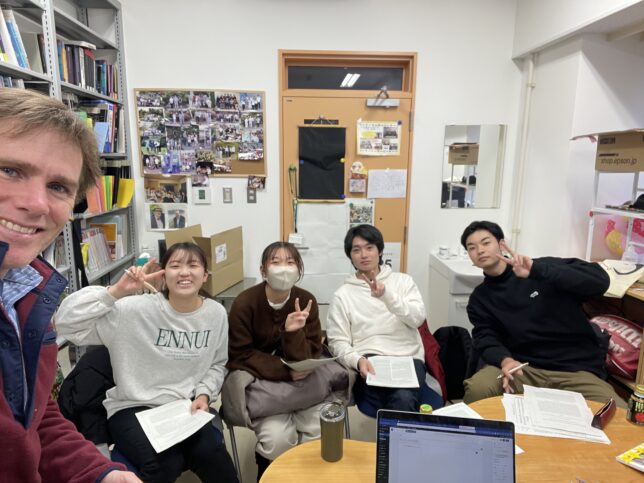Abstracts
Abstracts should have a/an
- Rationale: why is the study being conducted?
- What was investigated and how: How was the investigation conducted?
- Results: What were the findings?
- Implications: What are the implications?
We analyzed two papers:
Paper 1
Hall, J.M. (2024). Dilemmas Student Teachers Experience Conducting Language Learning Activities at Elementary Schools. 小学校英語教育学会誌, 24, 134-149
Rationale/ Topic
Dilemmas student teachers experience when teaching English communicatively at elementary schools
What was investigated and how?
The critical incidents in 297 CI Reports were grouped into themes. CIs within themes were examined to identify dilemmas student teachers are likely to experience when teaching communicatively.
Introduction
The writer argues that teaching is a problem-solving endeavor. Thus, this study identifies common dilemmas that STs face at elementary schools to better prepare future teachers. Note: Teaching is not necessarily “Prescriptive”.
Literature review
Student-teachers face issues relevant to their stage of professional development. However, challenges in carrying out communicative reforms are relevant to all teachers. Writing critical incidents are one way for student-teachers to develop episodic knowledge of ways to teach communicatively.
Results
Some dilemmas teachers are likely to experience were identified. They were: how to mix fun and learning, how to encourage students to use the target words and phrases, the role of practice, and the challenge of teachers using English. These dilemmas had no easy solutions.
Methodology
Participants
153 Japanese EFL students from two national and one private university in Japan. Their ages were 18 – 25 and proficiency was A1 to B2.
Data collection/ Instrument
Questionnaire using google forms with two sections about previous learning experiences using Likert Scale.
Analysis
Exploratory factor analysis.
Implications
Presenting student teachers with contradictory case studies can help them develop the ability to teach appropriately depending on the content, characteristics of the learners, and environment.
References
Paper 2
Shinohe, S. (2024). Japanese EFL Learners’ Successful and Unsuccessful Communication Experiences in English: An Exploratory Study The Language Teacher, 49(1), 13-19. https://doi.org/10.37546/JALTTLT49.1-2
Rationale/ Topic
Previous studies have shown that EFL learners’ past communication experiences can influence their present attitudes.
What was investigated and how?
An “Experience of Successful and Unsuccessful Communication Scale” was developed to examine the factors related to Japanese EFL learners’ previous experiences, their willingness to communicate, and their self-perceived English proficiency.
Introduction
Unsuccessful and successful experiences influence students’ present attitudes.
Literature Review
The researcher gives examples to support the above assertion. Among the examples is Polat (2013) who argues that each person’s internalization affects how they interpret current experiences. Studies also suggest that there is a relationship between language proficiency and past learning experiences.
Another previous finding is that learners’ past experiences may significantly affect their WTC.
The motivation for the student was to expand on Fuji’s qualitative study (2023) on the relationship between Japanese EFL learners’ past experiences and their WTC levels.
There are three RQs.
Methodology
Participants
There were 191 STs, who were second to fourth year in university and taking the English methodology course to get their secondary school English teachers’ license. Their proficiency was close to B2.
Data Collection and Analysis
The data were 297 CI reports. Applied thematic analysis was used. The first procedure was segmenting text, the second was writing codes, the thirds was grouping codes into categories. The last procedure was expanding on the categories and codes.
Identifying dilemmas
Identified pedagogical dilemmas through contradicting CIs.
Results
Successful communication experiences correlated positively with WTC while unsuccessful communication experiences correlated negatively. Also, students with higher proficiency frequently experienced successful communication.
Implications
It is important to consider learners’ past communication experiences and how they may affect current and future outcomes.
For our next meeting (2/5)
Read your respective papers and briefly summarize the major sections.
